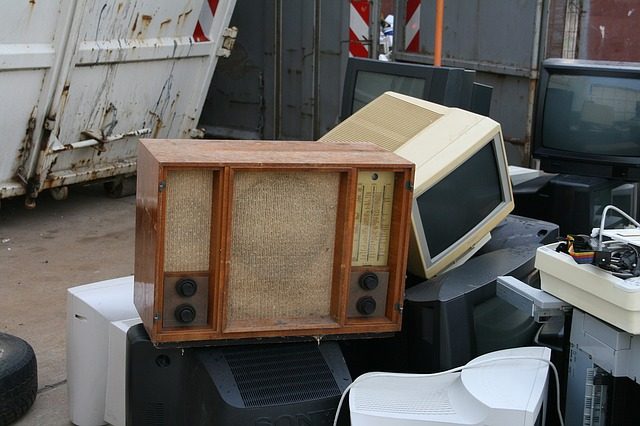A step towards a better world by Communicare Trust in partnership with NASSCOM Foundation was taken to help Goa rid itself of e-waste. On World Environment Day (5th June), both these organisations in association with the Government Environment Dept. set up environment-friendly e-waste collection centers across the capital city of Panjim. Three Government Handicraft Emporiums, The Electricity Department (Vidyut Bhavan), CCP Animal Shelter, KTC Bus Stand, and Government Polytechnic were appointed as collection centers.
E-waste?
Electronic products nearing the end of their life which can become hazardous and need to be disposed of are considered e-waste or electronic waste. From old, discarded mobile phones and batteries to broken ovens and refrigerators, any electronic product including computers, televisions, VCRs, stereos, copiers, fax machines, electric lamps, bulbs and audio equipment etc. make up electronic-waste.
Dangers of dumping e-waste into garbage dumps
E-waste contains hazardous metals like lead and cadmium that can leach into the soil and contaminate ground water. Making rivers, wells, and lakes unfit for drinking over a period of time.
This massive e-waste collection drive across Goa will take place upto 15th June 2017. NASSCOM, with their ‘ten-city’ programme, aims to create awareness about e-waste across the State. Having already conducted awareness workshops for the representatives of consumer forums, consumer welfare clubs, Mahila Mandals, service clubs and housing societies. Schools will also be included after the necessary permissions are received said Nalini Elvino de Sousa, who heads the Communicare Trust.
“But what happens after the campaign ends?” Ashley Delaney, a pioneer of ‘e-waste management’ in Goa has the answer for you. He has been running his e-waste collection center for the past six years. “Anything that has a wire, a plug or a battery or runs on electricity, that you probably aren’t going to use ever again, comprises electronic waste,” explains Ashley, founding member of Group TenPlus.
Misconception of recycling and reusing
Many people expect repayment on collection of the e-waste, says Ashley Delaney. ”They demand money when they hand over their e-waste.”. He further goes on to explain that e-waste cannot be reused for commercial purposes as is done with common plastic waste. E-waste contains harmful and hazardous material, therefore it can only be recycled.
The process of recycling entails extraction of glass, metal and plastic from the e-waste. According to the organisers, the waste collected will be segregated and transported to Bangalore where it will be processed in an appropriate and safe manner.
Let us support this initiative to protect our environment from further contamination and degradation.
Information Credit: Herald, ToI


